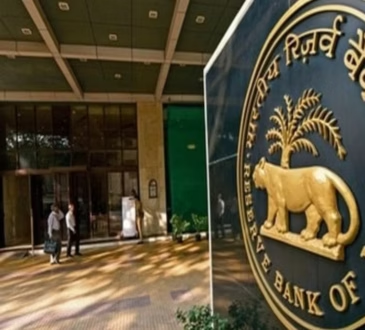India’s already tough stance on cryptocurrencies has just gotten stricter. While countries like Singapore, Hong Kong, and the UAE are opening their doors to digital asset innovation, India continues to double down on taxation. Now, a fresh layer of taxation is making waves across the Indian crypto community. As of July 7, 2025, major crypto exchange Bybit has begun charging an 18% Goods and Services Tax (GST) on all crypto-related services for Indian users. This move, introduced by popular crypto influencer Keyur Rohit, could mark a significant shift in how Indian crypto traders operate moving forward.
The newly imposed 18% GST applies across the board to nearly all services provided by Bybit for Indian users. These include spot and futures trading, staking rewards, token swaps, withdrawals, yield earnings, and even deposits made via card or bank. The list also extends to newer services like copy trading, bot trading, and card-based crypto payments. Notably, as a result of these regulatory changes, crypto loans and the Bybit Card will no longer be available to users in India, limiting access to some of the more innovative financial services in the crypto space.
This new tax regulation doesn’t exist in isolation. Indian crypto users are already facing a heavy financial burden in the form of a 30% tax on profits from crypto assets. On top of that, there’s a 1% Tax Deducted at Source (TDS) applied to every sell transaction on centralized exchanges. With the addition of an 18% GST on nearly all services, Indian users now find themselves caught in what many are calling a “triple tax trap.” The combination of capital gains tax, TDS, and GST may make trading and investing on centralized platforms increasingly unattractive.
For many, this could be the final straw. Crypto traders in India might now begin to explore alternatives, including decentralized finance (DeFi) platforms and peer-to-peer (P2P) trading. These platforms often provide greater anonymity, more control over assets, and, most notably, the ability to bypass the traditional compliance obligations required by centralized exchanges. While such a move doesn’t eliminate tax liability—users are still legally required to report earnings—it does reduce the visibility and enforceability of such obligations.
Keyur Rohit warns that this latest tax move might backfire by discouraging legitimate trading activity and pushing Indian users toward decentralized alternatives that are harder to monitor and regulate. This shift away from centralized platforms could severely impact volumes on exchanges like Bybit, WazirX, and CoinDCX, reducing their relevance in one of the world’s largest potential crypto markets.
There’s also a broader concern at play. A growing number of voices within the crypto industry are calling for India to introduce a fairer and more innovation-friendly tax regime. Excessive taxation, they argue, doesn’t just hurt individual investors—it stifles the entire ecosystem. Blockchain startups may find it harder to attract talent or investment, and India risks losing out on a technology that could otherwise be a cornerstone of its digital future.
This is particularly significant given the global momentum toward crypto-friendly regulation. From Bitcoin ETFs in the U.S. to the crypto licensing frameworks being introduced across the Middle East and Southeast Asia, many countries are looking to strike a balance between oversight and innovation. India’s tax-heavy approach, by contrast, risks alienating both users and innovators.
However, it’s important to note that tax avoidance or evasion is not a sustainable strategy. While DeFi might offer temporary relief for some users, long-term growth of the Indian crypto sector can only be supported through transparent, balanced, and forward-looking regulatory policies. Until such changes are made, many Indian traders may feel like they’re being punished for participating in an emerging financial revolution.
As the 18% GST kicks in, India’s crypto tax burden has become one of the heaviest in the world. With this added pressure, there’s likely to be a notable shift in trading behavior, a potential decline in domestic exchange activity, and an increased appetite for alternative routes that provide privacy and flexibility. Whether Indian regulators will adapt to this reality remains to be seen—but for now, the crypto community is bracing for tougher times ahead.
Post Views: 3




